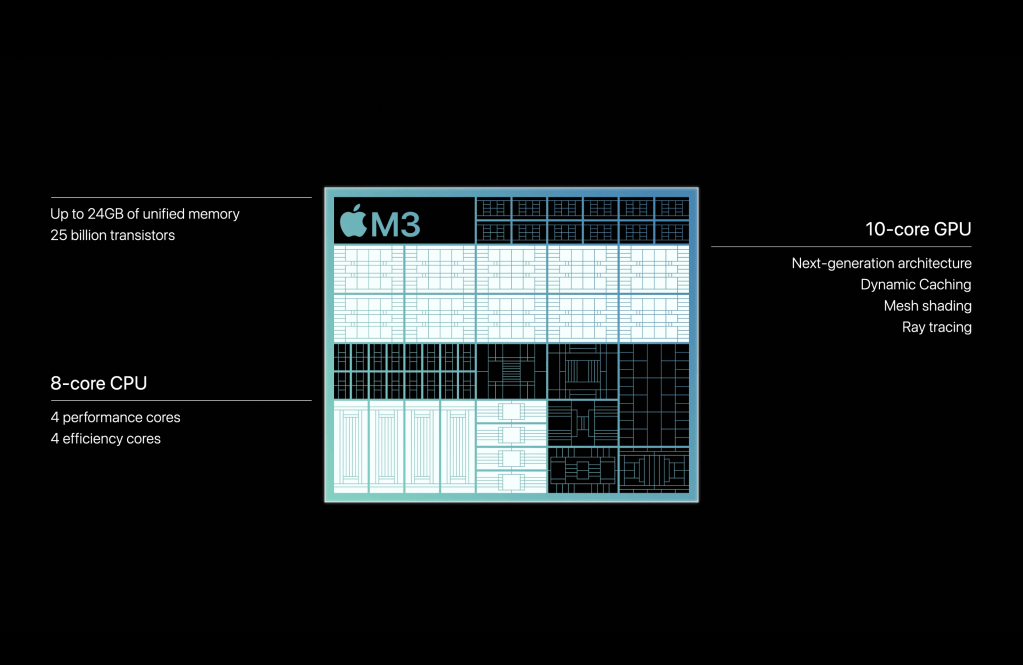The very first Geekbench 6 benchmarks of the MacBook Pro with M3 processor have started to appear in the Geekbench 6 database. What they show is a processor whose higher CPU performance is almost entirely owed to an increase in clock speed over the M2.
The performance gains are roughly in line with Apple’s marketing (which focused primarily on comparisons with the M1), but seem to suggest that the CPU core designs alone are not particularly exciting. Here’s a quick summary of the results.
MacBook Pro with M2
- Clock speed: 3.49GHz
- Single-core: 2587
- Multi-core: 9627
MacBook Pro with M3
- Clock Speed: 4.05GHz
- Single-core: 3030
- Multi-core: 11694
The M3 has maximum clock speed 16 percent higher than the M2. The single-core CPU performance score is about 17 percent higher, and the multi-core performance is about 21 percent higher. Those are similar gains to the M2 over the M1, which saw a most modest clock speed boost (3.5GHz compared to 3.2GHz).
It would appear that the single-core CPU score, which is set by one of the high-performance cores, is almost entirely due to the increase in clock speed rather than architectural improvements to the design of the performance core. When all the cores are at work, the efficiency cores, which Apple called out as being 30 percent faster than the M2’s, bring the score up to a very modest 5 percent improvement over the increase in raw clock speed.
Apple
Of course, the M3 is more than just a better CPU. The biggest changes, by Apple’s own admission, is to the GPU which brings new performance and efficiency. And with only 16 months since the introduction of the M2 and less than a year since the M2 Pro and M2 Max, improvements of 15-20 percent are perfectly reasonable. We’ll have a better picture of real-world gains from he GPU side when we get our hands on the first M3 Macs.
At least when it comes to CPU performance, the M3 owes most of its performance gains to TSMC’s 3nm process and the higher clock speeds it affords in the same overall power profile.

